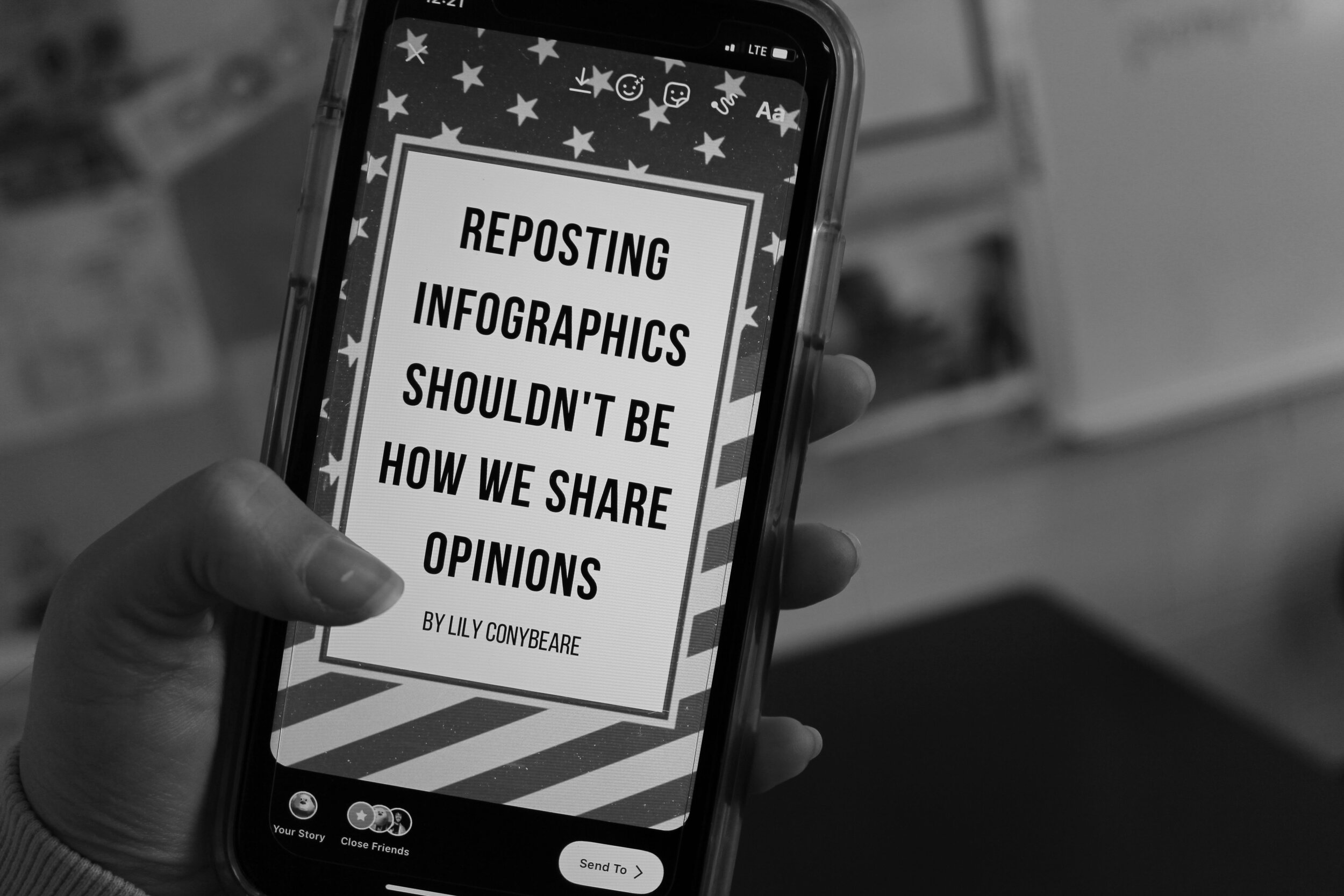Reposting: A False Sense of Activism
photo by Kiersten Olson
Three taps. Is that how you want to define your support? Three taps. Do you consider yourself an activist with these thumb movements? Three taps. Have you made a change? Are you satisfied? Reposting on Instagram stories became a trend this year as the Black Lives Matter movement swept the globe. With numerous ways to show support, many took to social media—specifically Instagram stories—to express their opinions.
The temptation is understandable, when coming across a post on your feed, to press that little send button, followed by “add post to your story,” and publicize these thoughts with that final tap. Notice how I say “these” instead of “your” thoughts. This is because the content being reshared isn’t your own. My concern is people mistaking using other people’s research, opinions, and work and believing it is enough to call themselves a supporter. Though it’s the most accessible way to express solidarity with a cause, reposting on Instagram stories gives the illusion of activism. How active is tapping three buttons?
Karenna Sohn, 12, was one of many SJHS students who reposted on Instagram during this movement.
“My goal when reposting something isn’t to change others’ opinions, it’s more to show the reality of what’s really happening to black people in our country,” Karenna said when explaining her reasoning for reposting.
However, not as many people put as much thought into reposting as Karenna did.
As FOMO (fear of missing out) plagues Gen-Z, I questioned how many people were reposting because they thought they were making a change, or reposting because they saw their friends doing it. Too often, I came across people who reposted daily, yet couldn’t “make the time” to attend a rally, or write a post of their own to share. I fear that people are using Instagram stories as an easy out to make themselves feel better, instead of “risking” going to a rally or sacrificing the time to create a post of their own.
Credibility worries me just as much as FOMO. While we respond to the naggings of English teachers to check our sources for a research paper, students forget this mindset when taking to social media. Sure, the post might be aesthetically pleasing, and help support your BLM cause, but it is important to make sure you are not spreading false or biased information. If you learn about an event or law through these posts, make sure to check credible sources to affirm the information. It is also very important to make sure these sources are balanced, as we spend so much time criticizing our opposing viewpoints of spreading one-sided information.
“When I posted something I also made sure it wasn’t political at all, because I don’t think human rights is a political issue,” Karenna shared.
I don’t believe people should support a cause only because it’s “trendy,” or because they feel as though they will be judged if they don’t post something. Rather, it is important to research the cause, and come to your own conclusions. Think about this—would you be able to create your own version of those cute BLM infographics?
Social media activism is in no way a bad thing. Instead, it is a great complement to physical action. Attending a rally, donating money, writing a speech, or educating yourself further than the cutesy infographics with books and documentaries are great ways to take action.

